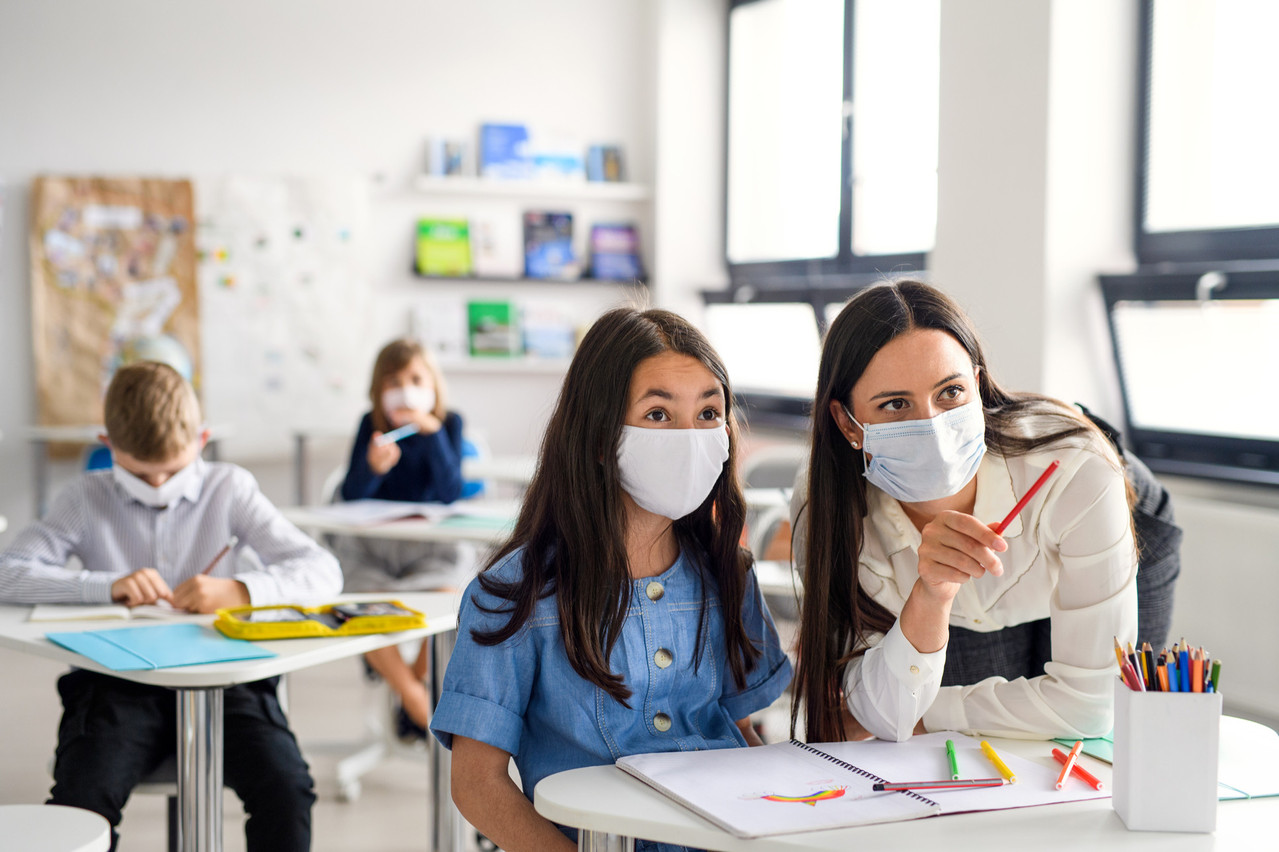The summer holiday season put an end to . This phenomenon is expected to increase in the coming weeks. And, under the effect of the Delta variant, which is more contagious, especially among young people, the start of the school year will be particularly risky.
In a recommendation of 17 August 2021 on the subject of vaccination of persons over 12 years, the Higher Council for Infectious Diseases (CSMI) noted "a greater contagiousness of the new variants in the population, including in the younger population groups".
As a result, "infection notification rates among children and adolescents in most countries are currently among the highest, with levels of infection similar to those of young adults", and they represent "an increasing proportion of weekly cases since January 2021", notes the CSMI.
0.6% of hospitalisations among 0-15 year olds
In addition to the high contagiousness of the variants, there are several reasons for this development: vaccination of adults, the reluctance of younger people to take anti-covid measures and vaccines, and greater social interaction within this population.
These interactions are likely to increase with the start of the school year, and thus multiply the risks. First of all, for the children and adolescents themselves. Although the latter are generally not very symptomatic and serious infections are exceptional, "some of them require hospitalisation because of their infection, some of them in intensive care", notes the CSMI.
In Luxembourg, since the start of the pandemic, 3.1% of hospital admissions have been for 0-19 year olds, including 1.3% of admissions to intensive care. Between March 2020 and April 2021, around 10,000 children between 0 and 15 years old tested positive. 0.6% of them were hospitalised, and among them 6% in intensive care.
In addition, young people are impacted by long-term effects of coronavirus “long Covid”. "A considerable percentage of them will develop persistent symptoms after infection", the CSMI says.
The exposed population
Deaths, which are very rare - no paediatric deaths have been reported in Luxembourg - are still possible: according to the Wolrd Health Organization, out of 5 million infections among 0-24 year olds in Europe, 421 have led to a death among young people, including 295 deaths among 15-24 year olds.
The second risk is to allow the virus to circulate within a significant part of the population (the under-18s represent 21% of the population in Luxembourg), thus indirectly exposing the rest of the population.
"As long as the virus is able to circulate in this age group, the rest of the population will remain at risk of exposure and infection by the virus," warns the CSMI, adding that "children and adolescents can become infected with Sars-CoV-2 and transmit it to other individuals.
Mitigation measures needed
"Appropriate mitigation measures" are therefore needed in schools to contain infections, the CSMI warns. At the ministry of education, discussions on these measures, both internally and with the ministry of health, are expected to continue until the end of August. But, overall, the health measures put in place during the previous school year - gradual measures according to pre-established scenarios - "worked well", according to the ministry. It should therefore be "renewed, but adapted" for certain aspects still to be defined.
Although vaccination of persons over 12 years have opened up, health minister Paulette Lenert (LSAP), recently acknowledged at a press conference that "the younger population is still more reluctant to be vaccinated". To compensate for this, she announced that regular and continuous rapid antigenic self-tests are planned to monitor unvaccinated children. And the emergency testing scheme within clusters, particularly in schools, will be maintained.
Announcements on 3 September
The president of the teachers' union SNE/CGFP, Patrick Remakel, hopes that a "balance" will be found between the need for face-to-face lessons, which are "important for pupils", and the need to "put the health of pupils and teachers first" and to take "all necessary measures" so that "the virus does not spread".
A press conference by the ministry of education to present the health measures for the start of the new school year is scheduled for 3 September.
This article was first published on in French. It has been translated and edited for Delano.
